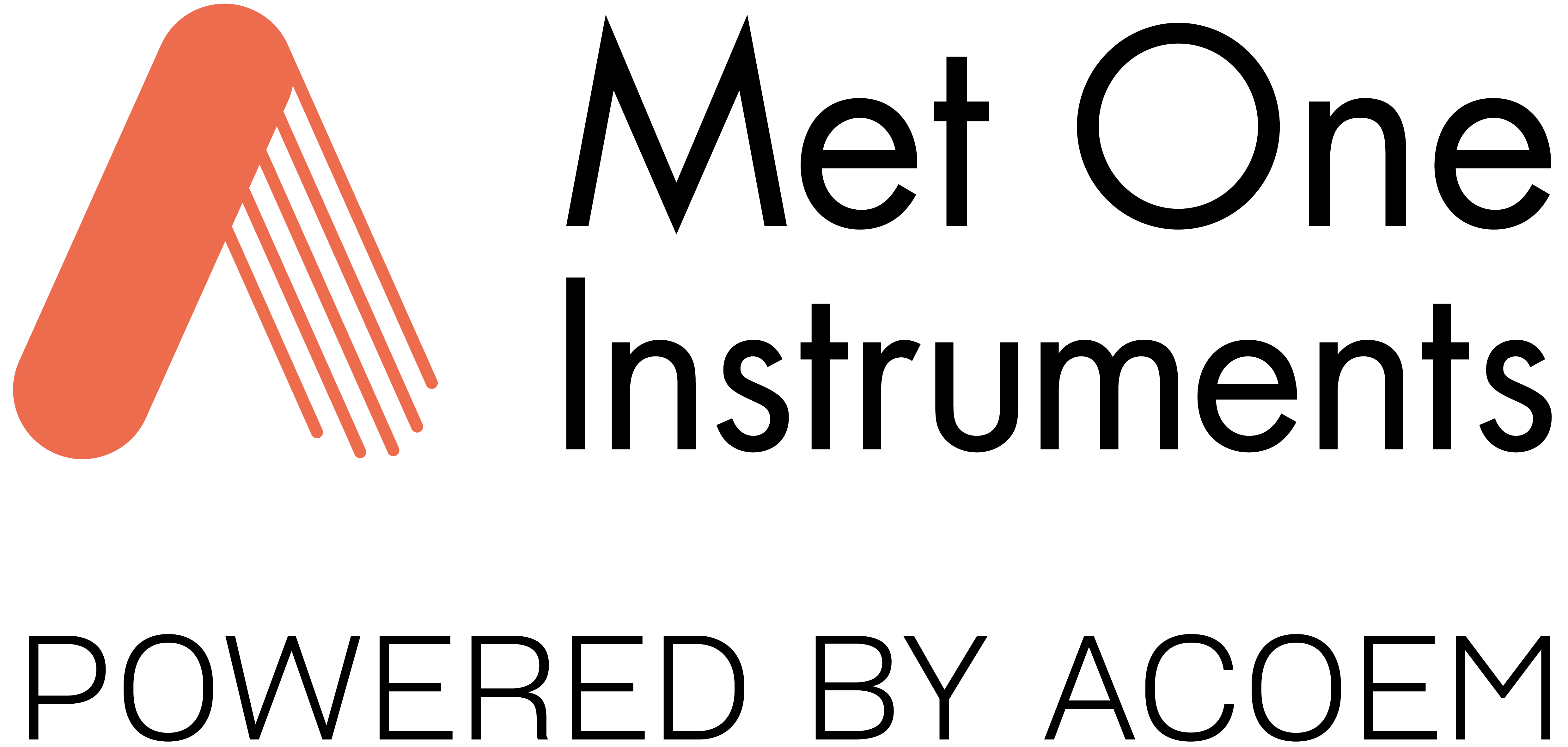The US EPA has set forth guidelines that classify different instrumentation industry-wide based upon accuracy and other factors. Read on to learn more about the different categories, how Met One Instruments, Inc. set the standard for Regulatory monitoring, and which products are well-suited for your specific application.
Reference, Regulation Monitoring
Reference and Regulation monitoring are classified as the highest grade of monitoring instrumentation, given only to those instruments that pass the EPA strict certification requirements. Met One Instruments’ BAM 1020 and BAM 1022 are the dominant Federal Equivalent Method (FEM) products in the US and two of the most successful monitors sold in the world. We also provide both manual and sequential FRM Samplers. The accuracy requirement is ± 10% of the reference standard. Furthermore, an additional condition exists that the Monitor can operate indefinitely without any site-specific span calibration against a local reference standard.
Met One Instruments, Inc. also offers the E-FRM and the E-SEQ-FRM, which are single-event and multiple-event reference samplers.
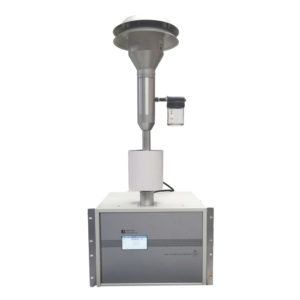
BAM-1020 Continuous Particulate Monitor
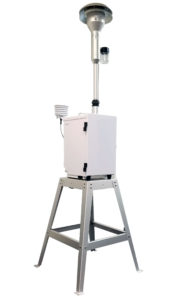
E-FRM Reference Sampler
Personal Exposure Monitoring (Non-Regulatory Supplemental & Informational Monitoring)
Personal exposure monitoring may include a wearable sensor or, more typically, a portable sensor located in the same environment. This scenario is generally hyperlocal monitoring, and the emphasis is placed on the individual’s exposure. It is imperative that the instrument have the stability required to make drift-free measurements without adjustment. Portable Met One products such as the BT-645 and Aerocet 831 are often used in this application. Accuracy compared to the EPA reference standard might be expected to be ± 20% of the reference standard with occasional recalibration of the device against a reference standard and ± 40% based solely on factory default calibration against PSL.
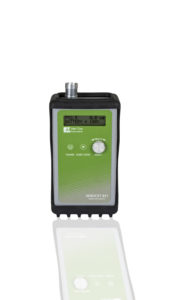
Aerocet 831 Handheld Particle Counter
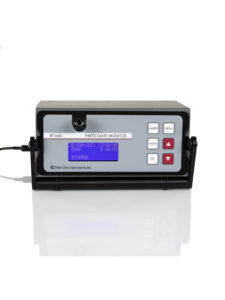
BT-645 Portable Dust Monitor
Supplementary Network Monitoring (Non-Regulatory Supplemental & Informational Monitoring)
Products in this category include Fence Line Monitoring and other monitoring to fill in local monitoring gaps. Data collected may be transmitted to a central location for public awareness. Met One Instruments, Inc. products in this category are tested to the same standards as FEM Instruments. Today’s readings will reflect the same results as collected months before in a similar environment. Products such as the ES-642, ES -405, and E-BAM are often employed in this application. The E-BAM can generally produce results within ± 20% of the reference standard indefinitely without any site-specific span calibration against a reference standard. The ES-405 can usually produce results within ± 15% of the reference standard with occasional recalibration of the device against a local reference but within ± 25% of the reference standard based on the factory default settings. The ES-642 can generally produce results within ± 20% of the reference standard with occasional recalibration of the device against a local reference but within ± 40% of the reference standard based on factory default settings.
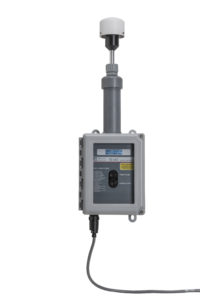
ES-642 Remote Dust Monitor
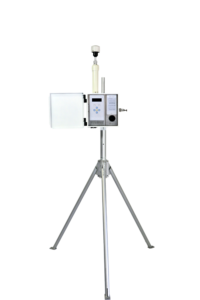
ES-405 Simultaneous Particulate Profiler
Hotspot Identification and Characterization
While accuracy requirements for this level are set lower by the EPA, the implicit need for quick response is obvious. Met One Instruments E-BAM or the E-BAM 2 with US EPA PM10 certification are both very accurate and very easy to deploy, and when used with Met’s CCS+ Cloud Plus Service, the units are GPS located, and data is transferred to the phone, tablet, or computer for maximum ease of use. Beta gauges, such as the E-BAM, BAM-1022, or E-BAM PLUS, do not require site-specific span calibrations as do optical PM monitors and may be expected to provide results that are generally within ± 10% of the reference standard.
Additional products include the E-Sampler, and ES-405, which are less expensive and very portable. The ES-412 Monitor comes complete with Cloud Service and GPS location and with PM10 and PM2.5 channels. The ES-405 can generally produce results within ± 15% of the reference standard with occasional recalibration of the device against a local reference and within ± 25% of the reference standard based on the factory default settings. The ES-642 can generally produce results within ± 20% of the reference standard with occasional recalibration of the device against a local reference but within ± 40% of the reference standard based on factory default settings.
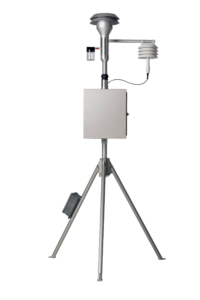
E-BAM Portable Environmental Beta-Attenuation Mass Monitor
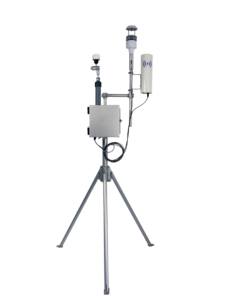
E-Sampler Dual Ambient Monitor & Sampler
Education and Information
Sensors at this level are designed to provide indicative readings for classroom and public awareness. Met One Instruments, Inc. has a variety of solutions to these requirements, and they all give a degree of quality of measurement with solid, stable performance that is drift-free. Products range from the Aerocet 831 handheld Particle Counter, the ES-412, the BT-645, and the outdoor NPM 2. For this type of application, the user generally relies on default factory calibration settings and might obtain results that are within ± 40% of the reference standard. If the user employs site-specific calibration factors, one might expect accuracy results of ± 25% of the reference standard.
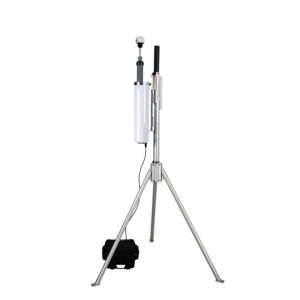
ES-412 Portable Simultaneous Particulate Profiler
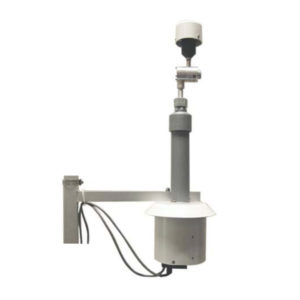
NPM 2 Network Particulate Monitor
